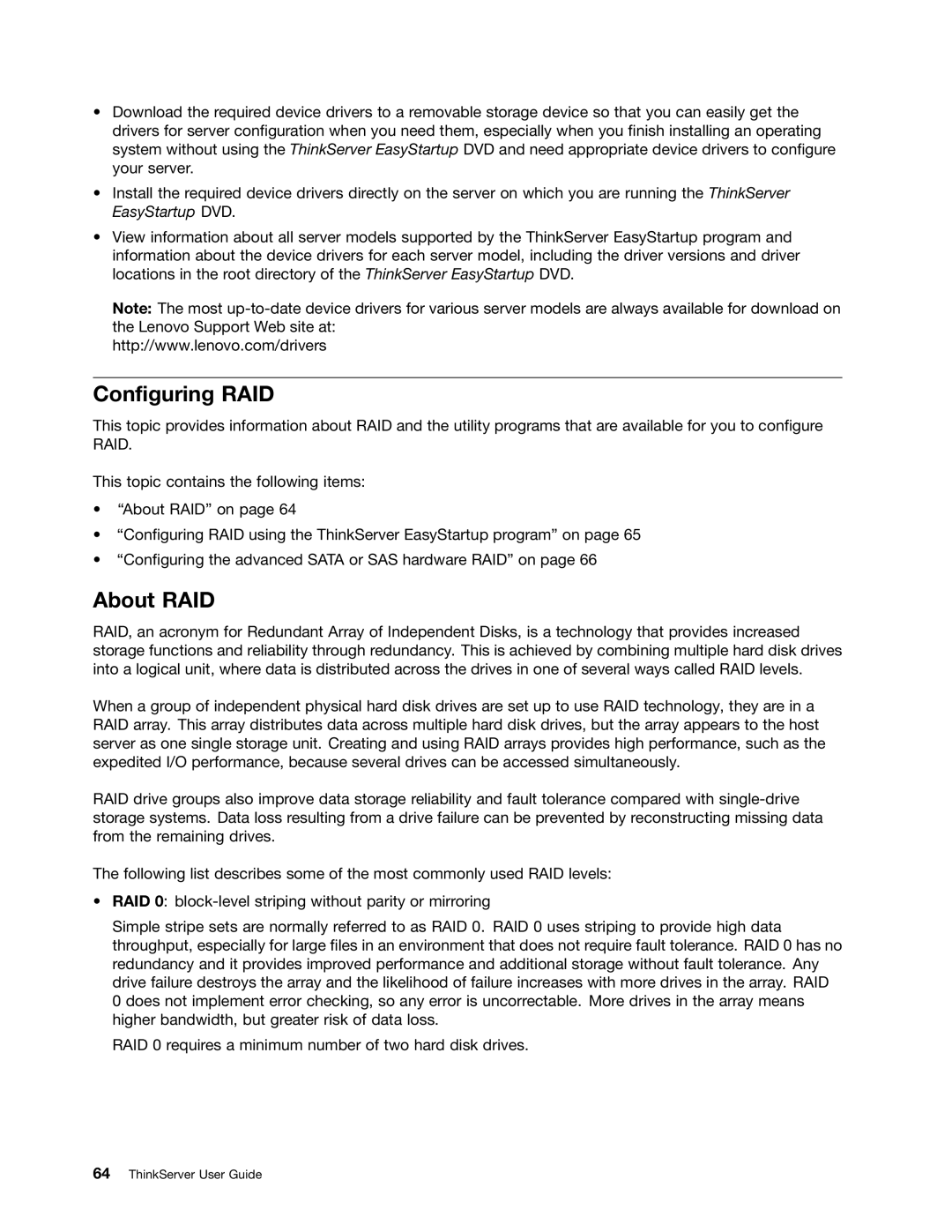•Download the required device drivers to a removable storage device so that you can easily get the drivers for server configuration when you need them, especially when you finish installing an operating system without using the ThinkServer EasyStartup DVD and need appropriate device drivers to configure your server.
•Install the required device drivers directly on the server on which you are running the ThinkServer EasyStartup DVD.
•View information about all server models supported by the ThinkServer EasyStartup program and information about the device drivers for each server model, including the driver versions and driver locations in the root directory of the ThinkServer EasyStartup DVD.
Note: The most
http://www.lenovo.com/drivers
Configuring RAID
This topic provides information about RAID and the utility programs that are available for you to configure RAID.
This topic contains the following items:
•“About RAID” on page 64
•“Configuring RAID using the ThinkServer EasyStartup program” on page 65
•“Configuring the advanced SATA or SAS hardware RAID” on page 66
About RAID
RAID, an acronym for Redundant Array of Independent Disks, is a technology that provides increased storage functions and reliability through redundancy. This is achieved by combining multiple hard disk drives into a logical unit, where data is distributed across the drives in one of several ways called RAID levels.
When a group of independent physical hard disk drives are set up to use RAID technology, they are in a RAID array. This array distributes data across multiple hard disk drives, but the array appears to the host server as one single storage unit. Creating and using RAID arrays provides high performance, such as the expedited I/O performance, because several drives can be accessed simultaneously.
RAID drive groups also improve data storage reliability and fault tolerance compared with
The following list describes some of the most commonly used RAID levels:
•RAID 0:
Simple stripe sets are normally referred to as RAID 0. RAID 0 uses striping to provide high data throughput, especially for large files in an environment that does not require fault tolerance. RAID 0 has no redundancy and it provides improved performance and additional storage without fault tolerance. Any drive failure destroys the array and the likelihood of failure increases with more drives in the array. RAID 0 does not implement error checking, so any error is uncorrectable. More drives in the array means higher bandwidth, but greater risk of data loss.
RAID 0 requires a minimum number of two hard disk drives.
